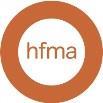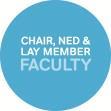They hold the executive accountable, bear a lot of responsibility and are experienced – but they still need training. Claire Read on how to help non-executive leaders make a bigger impact on the NHS

Training non-executive leaders is crucial
Having investigated the catastrophic failures at Mid Staffordshire, there are arguably few figures who have as deep an appreciation of the importance of non-executive leadership in the NHS as Sir Robert Francis.

Ask him about the value of chairs, non-executive directors (NEDs) and lay members to the health service and his answer is unequivocal. “I think they’re absolutely essential, because they are the people who hold the executive to account, and are there to challenge them with regard to what otherwise might be accepted nostrums.”
However, he combines his belief in the importance of the role with an understanding of its complexities – one which he says has been reinforced by his own recent appointment to an NED role at the Care Quality Commission.
‘Being a non-executive is a deeply responsible task with accountability attached to it’
“The challenge that any NED has is of course acquiring enough information in order to make a judgement,” he says. “And that requires an open stream of usable information, the means to understand it, and the ability and skills to ensure that the appropriate reaction happens to that information. And clearly in my view that was missing at Mid Staffordshire.
“No one would pretend that being an NED – let alone a chair of an organisation – is anything other than a deeply responsible task which has an ever increasing degree of accountability attached to it.”

Sir Keith Pearson fully concurs. The current chair of Health Education England, he has held chairmanships at a variety of NHS organisations since 1998, and identifies changing demands being made of those in health service non-executive posts.
“Our expectations of the NED community in the NHS go far beyond their role to act as stewards and ambassadors – that old classic role that we saw from them,” argues Sir Keith. “We expect them now to set the tone for the organisation, to be the champions for an NHS that rates so highly in the minds of the public that it’s rarely off the front pages of the media.
More from this supplement:
Training requirement
“I think it’s fair to say that chairs and NEDs come into the NHS with considerable external experience, often from the private sector but increasingly from other public sector organisations.
“But what is very clear to me is that chairs and NEDs, when they come into the NHS as raw material, will need to be trained and developed quite rigorously and, for some time, to build that range of competencies, sensitivities and skills that are necessary to be part of a board that takes major decisions on behalf of the public.”
Staff at the Healthcare Financial Management Association (HFMA) agree. Indeed, it is the rationale for its Chair, Non-Executive Director and Lay Member (CNL) Faculty. The aim: to enable people in these roles to come together and learn more about the NHS and its challenges.
‘There are induction courses for the newly appointed, regular meetings, e-learning and webinars’
It offers a supportive environment to those in positions that can sometimes prove isolating, as well as providing them with the knowledge they need to carry out their roles to the best of their abilities.
There are induction courses for the newly appointed, regular meetings, and e-learning and webinars. Notably, the organisation has taken an intentionally inclusive approach – members come from both commissioning and provider bodies.
As CNL Faculty’s chair, Heather Strawbridge puts it: “The faculty provides the opportunity for members to share their own experience with colleagues from both provider and commissioner organisations throughout the NHS.”
Chris Dye on non-executive leadership
An organisation of the size, complexity and social value of the NHS must have the strongest leadership possible. Unfortunately, a number of recent high profile incidents have suggested that this has not always been the case.
There’s no doubt that high quality clinical and professional leadership is vital. However, it is equally important that NHS boards and governing bodies have strong and diverse input from individuals who bring expertise and viewpoints from their experience at the uppermost level of other sectors.
This is why the 2,200 people who fulfil chair, non-executive director and clinical commissioning group lay member roles in around 470 NHS organisations across England are so crucial.
These individuals come from a range of backgrounds but also bring specific understanding of their local communities; knowledge that can positively influence strategic decision making and, most significantly, help to ensure good governance. The boards and governing bodies they sit on also have a vital role to play in setting the overall culture of an organisation - a culture that can foster openness and opportunity.
That in turn has a direct influence on the quality of care and ultimately, saves lives.
In previous NHS configurations, regional health authorities, Department of Health regional offices, the Appointments Commission and strategic health authorities had a leading role in ensuring that all non-executives were supported and developed. This is no longer available nationally to the group as a whole.
As a result, the HFMA has set up a faculty - open to all providers, commissioners and NHS national bodies - to ensure information flows between the groups and that ongoing networking and development is still available.
The Chair, Non-Executive and Lay Member Faculty provides peer support along with updates and learning from regulatory bodies and experts in the field at regular forums. It also offers a thorough induction programme, chairs’ conference and e-learning opportunities.
Chairs, non-executives and lay members use the faculty to learn from and with like minded people from across the country.
They share experiences, taking knowledge back to their own organisations so they can make the best possible contribution - challenging strategic thinking and governance arrangements where they feel improvements can be made. The faculty is open to all NHS organisations and offers reduced cost access to other HFMA resources throughout the year.
To find out more about HFMA’s Chair, Non-Executive and Lay Member Faculty, please visit http://hfma.to/cnl or join us at stand A44 at the NHS Confederation Annual Conference 2015.
Chris Dye is director of the Chair, Non-Executive and Lay Member Faculty at the HFMA
Sharing experience
She emphasises that the faculty “really respects the experience and knowledge that NEDs, lay members and chairs have”.
“It’s absolutely essential that people who are new to the NHS can come in and get that learning,” says Ms Strawbridge, who is also chair of South Western Ambulance Service Foundation Trust. “But we really do respect the background of the people coming into these roles.”
In other words, it is less about teaching people new skills and more about helping them apply these in a new environment. The necessity of this is emphasised by Sir Robert.
‘It is more about helping them apply their skills in a new environment’
“One of the things that struck me with Mid Staffordshire is that people are often recruited to these roles from a business background,” he says. “That means they are often quite well equipped to understand the accounts and the money side, but perhaps less so the delivery of the service – simply because the information comes to them in a way that is less familiar to them.
“I think that’s one of the reasons why board attenders tend to be driven by finance and targets, which you can measure and see on a piece of paper in a rather easier way than perhaps some of the more difficult stuff about standards of care.”
It is a theme echoed by Ralph Coulbeck, director of strategy at the NHS Trust Development Authority. For the past two years, the organisation has been responsible for appointing chairs and NEDs for NHS trusts.
‘We need a wider pool of people to come and do these important jobs’
Mr Coulbeck says the complexity of the data such individuals need to understand has grown even in that time.
“The expectations on non-executives for the scrutiny of the quality of care have rightly increased substantially in the post-Mid Staffordshire environment. And that can often be a highly technical requirement, to understand complex data, to challenge appropriately, to understand the difference between an outlier and a blip, a trend and a natural variation in data. This is really quite difficult stuff, but it’s essential that non-execs in patient care providing organisations have those skills.”
Sir Robert firmly believes that training plays a key part here, but expresses concern that too often training initiatives come and go.
“I think it does require some national initiative to try and get something on the go which is going to stay there,” he says. “We need a wider pool of people to come and do these important jobs, and if you actually offer them some training, people will not be deterred by the feeling of: ‘I don’t know anything about this; I’d be terrified to try’.”
Supplement: Make the most of non-executives and the independent sector

In this HSJ supplement, we look at the role of non-executives and why the NHS should enhance the role of the independent sector
- 1
 Currently
reading
Currently
reading
Supplement: NHS non-executive leadership is worthwhile
- 3
- 4

































No comments yet